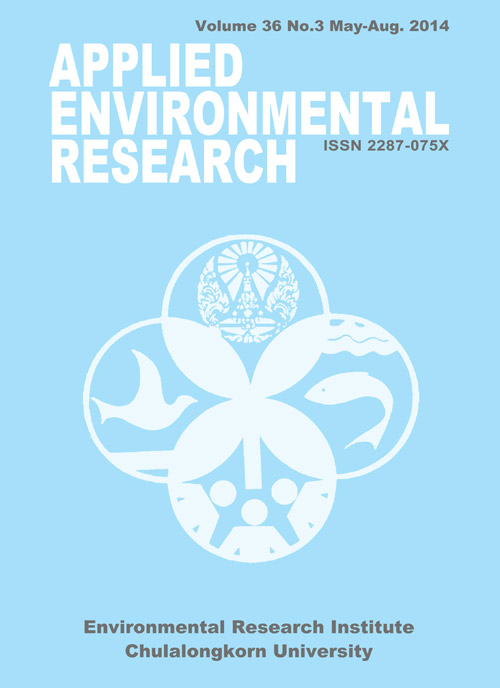The Challenge of Promoting Greater Use of Economic Instruments in Thailand: Lessons Learned from the Draft Act on Economic Instruments for Environmental Management
Main Article Content
Abstract
Current policies and plans geared toward green growth/green economy emphasize the greater use of economic instruments. This paper reviews the past and current application of economic instruments (EIs) in environmental management in Thailand. Insights gained from documentary research indicate that EIs such as product taxes through collection of excise taxes have been relatively effective, whilst user charges for solid waste and waste water treatment have been found to be unsuccessful in Thailand. Lessons learned from the draft Act on Economic Instruments for Environmental Management indicate several institutional constraints towards the extensive application of EIs. This paper provides some suggestions to overcome these challenges including institutional reforms, an appropriate mix of policy instruments, and proactive roles of academia in raising environmental awareness and knowledge of the relevant authorities and the general public which could increase political support for environmental policies and the use of EIs in particular.
Article Details

This work is licensed under a Creative Commons Attribution-NonCommercial 4.0 International License.
Published articles are under the copyright of the Applied Environmental Research effective when the article is accepted for publication thus granting Applied Environmental Research all rights for the work so that both parties may be protected from the consequences of unauthorized use. Partially or totally publication of an article elsewhere is possible only after the consent from the editors.

